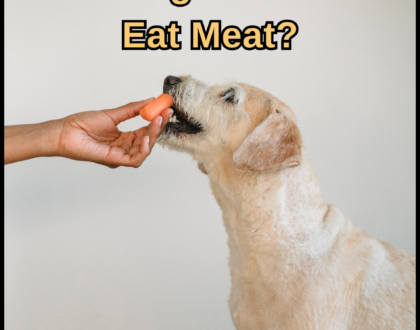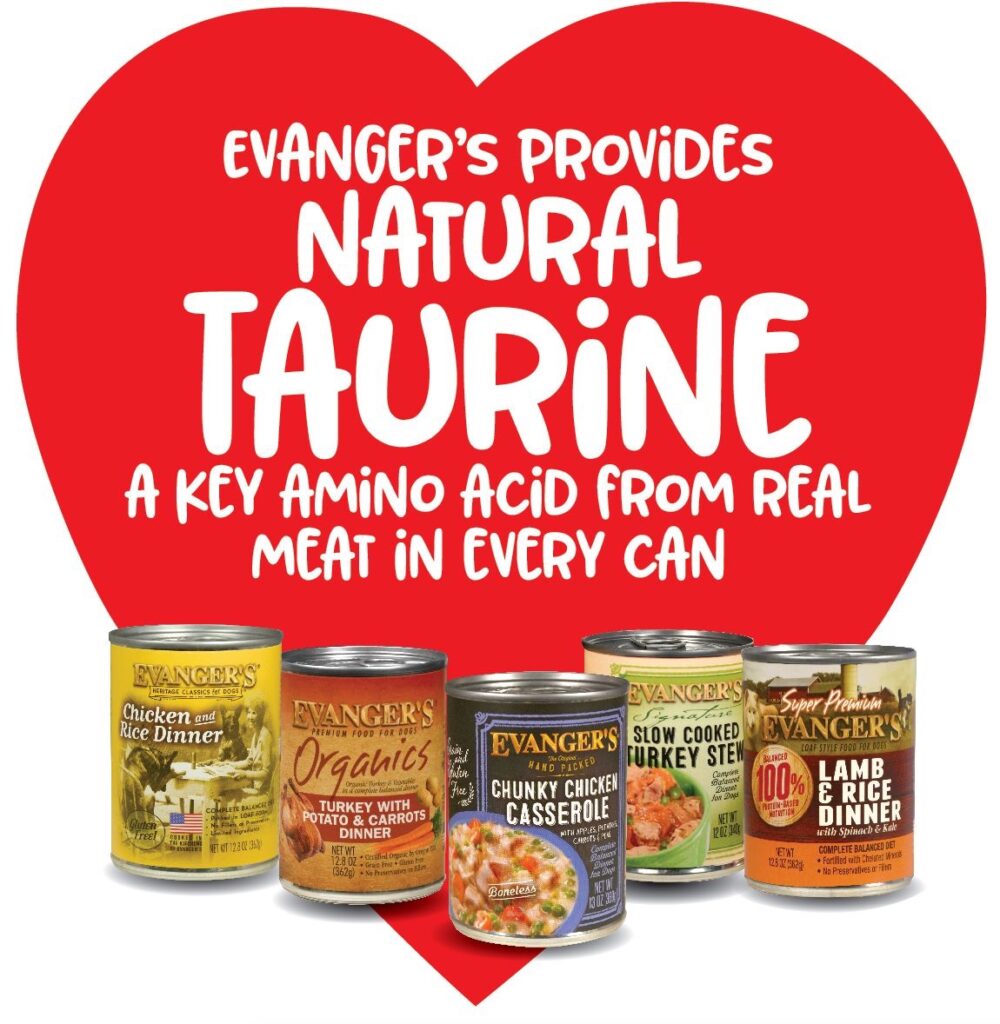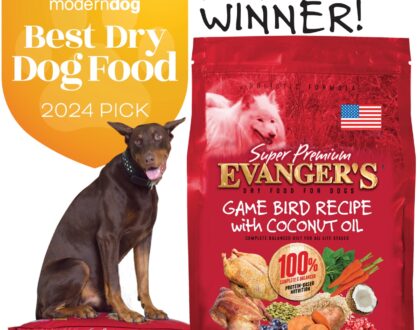DCM in Dogs: What Is It and What Should I Do?

by Chelsea Sher
The term ‘grain-free’ has become a source of confusion and debate in the realm of dog food, sparking discussions about its potential impact on canine health. While many nutritionists caution against high levels of grains in dog food, concerns have risen regarding a possible link between grain-free diets and dilated cardiomyopathy (DCM) in dogs.
Pet parents, aiming to provide optimal nutrition for their furry friends, are troubled by the idea that their choice of diet might be connected to a serious disease like DCM. It’s important to note that while DCM has various causes, including genetics and medications, there is no scientific evidence definitively linking grain-free or grain-inclusive diets to DCM.
Despite this lack of evidence, the worry persists, especially due to confusion between ‘grain-free’ foods, which often include grain substitutes, and diets that genuinely have no grains, such as many of Evanger’s canned recipes.
In the pet food industry, ‘grain-free’ typically means the absence of ingredients like corn, oats, wheat, and soybeans, replaced with alternatives like potatoes or sweet potatoes. However, the critical issue is not the specific grain but the quantity of soluble carbohydrates, such as starch and sugar. Substitutes like potatoes can be equally carbohydrate-rich, posing similar concerns.
MEAT-BASED DOG FOODS
For optimal canine nutrition, it’s recommended to feed dogs a diet low in starch and sugar, typically achieved through complete and balanced meat-based dog food. The emphasis should be on avoiding a high-carb diet rather than specifically focusing on grain-free options.
The pet food industry, dominated by brands producing crunchy kibble, often includes excess carbohydrates due to the nature of the extrusion process. While grain-free kibble may seem beneficial, it can still be high in starch and deliver excess carbohydrates, leading to potential health issues like obesity.
There are various ingredients that can replace traditional grains in dog food, but if the product is crunchy kibble, it is likely to contain excess carbohydrates. The benefits of grain-free dog food are mainly related to economic and convenience factors, as both ‘with grain’ and ‘grain-free’ options can be dubious due to high starch content.
Concerns about grain-free diets causing heart disease (DCM) lack credible scientific evidence. If there is a connection between diet and DCM, it is more likely related to protein quality, quantity, and specific amino acid levels.
Feeding grain to dogs in moderation is acceptable, as a primordial diet consists of 5-7% carbohydrates. The distinction between grain-free and gluten-free/wheat-free is important, as the former does not necessarily imply the absence of gluten.
Puppies can eat grain-free dry kibble, but it’s essential to focus on a balanced diet with calories derived from protein and fat rather than excessive carbohydrates. When evaluating grain-free dog food, considering the percentage of calories from protein, fat, and carbs is crucial, as lower-carb diets are generally better.
If a pet is allergic to specific grains, a grain-free kibble might alleviate symptoms. However, it’s essential to recognize that a dog’s food sensitivity may be linked to overall carbohydrate content in the diet, and reducing starch and sugar could help lessen allergic reactions.
WHAT DOES THIS ALL MEAN?
We recommend feeding a natural, wet food diet. Evanger’s canned dinners are primarily muscle meat, which is naturally full of essential amino acids including taurine. Not to mention, of course, your pet will salivate as he or she enjoys a delicious and nutritious meal!
Recommended Posts

Dog Food Myths: Do Dogs Need to Eat Meat?
May 11, 2023

Dog Food Myths: Should You Not Switch Up Your Dog’s Diet?
April 21, 2023




